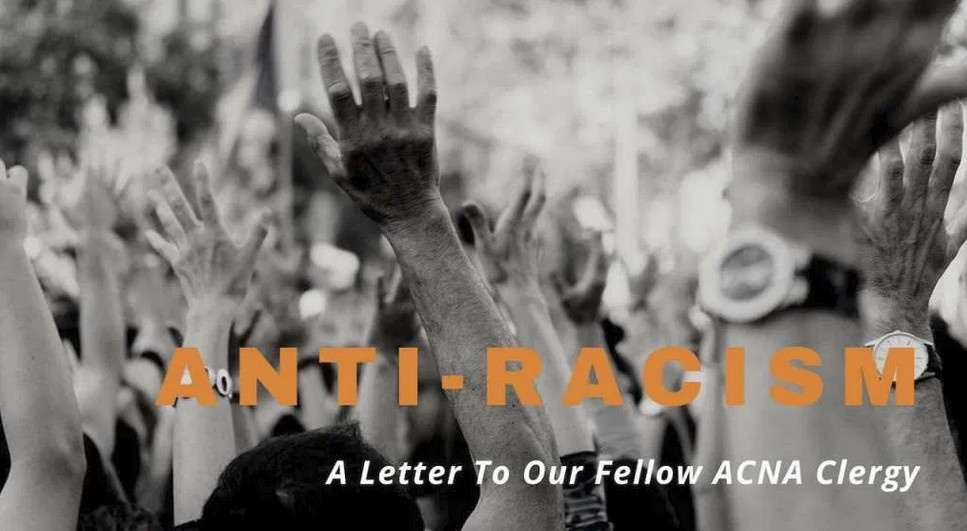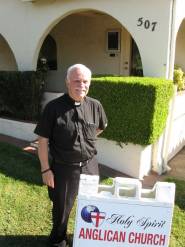Apparently, it would help foster reconciliation if TEC stopped suing ACNA congregations. Who knew?
Dr Beach’s presence at the gathering was at the insistence of the GAFCON Primates, who had said earlier that they would not attend a meeting without him. He was widely expected to be asked to leave after the first two or three days, but instead stayed for the whole of the meeting, and was included in a number of the votes the Primates took.
He said, however: “I did not vote when it came to the Episcopal Church. In my conscience I didn’t feel that that was appropriate. I’m not part of the official Anglican structures yet, although I’m in communion with provinces that represent the majority of the Anglican Communion.
“They basically gave out pieces of paper when it was time to vote, and I just refused it.”
The Canterbury gathering was the first time that Dr Beech met the new US Presiding Bishop, the Most Revd Michael Curry. “We were very cordial with each other, but we didn’t have any deep conversations.
“But one thing I did say, and I said this in front of the other Primates, because I was asked a question: one thing that would help towards reconciliation and collaboration would be if they call off the lawsuits. Right now they’re suing numbers of our congregations for millions of dollars and property and church buildings, and on and on it goes. They could call that off in a moment. It’s going to be hard as long as we’re in court against each other.”
Dr Beach described the mood of the meeting as serious and, at times, tense. But he had been treated at all times, he said, “with respect and dignity as an Anglican Primate”. He scotched the rumours of confiscated phones and a “divide and rule” approach to preventing the conservatives getting together.
“There was a time when we were wrestling with an issue, so we all divided into groups, and came back — and it didn’t help. It just didn’t help.
“But at any time Archbishop Welby would say: ‘I think it’s time for you to gather in your own groups, or maybe you just want to go for a walk,’ and gave time for us to meet together.
“I think that’s part of why people were able to stay engaged and be a part of it, because we were able to communicate.”
The departure of the Archbishop of Uganda, the Most Revd Stanley Ntagali, was accepted as a consequence of the canons passed by his provincial synod, which prevented his sitting in a meeting with the US Episcopal Church or the Church of Canada unless they repented.
“For him to even show up was really putting him out on a limb with his people,” Dr Beach said. “And the longer he sat there — he’s such a godly man with such a tender conscience — the more he came under the conviction that he cannot offend or hurt his people. He didn’t leave out of anger. . . he just felt he was not being faithful to his duties as an Archbishop. And so we blessed him, and he blessed us. And then we continued on.”
He was optimistic about the future acceptance of ACNA. “What this meeting did was allow other folks, who had only heard rumours about us, to get to know what we are, what we’re not, what God is doing in our midst.”
The question of admitting ACNA as a full member of the Communion was raised, but referred to the Anglican Consultative Council (ACC), which next meets in April. In the full communiqué released by the Primates on Friday afternoon, this was described as a matter of “polity” — i.e. something on which the Episcopal Church will not be able to vote if the ACC accepts the sanctions imposed by the Primates’ gathering.






